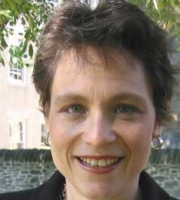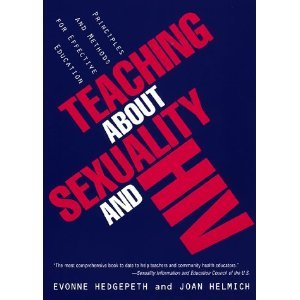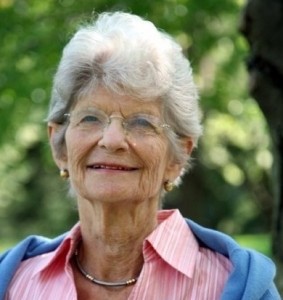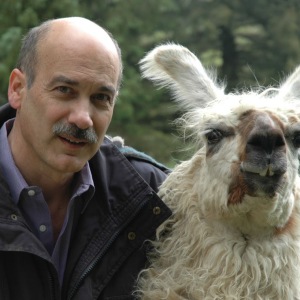Every year, The CSE honors an outstanding leader in sexuality education with the Golden Brick Award. Named in honor of legendary sexuality educator Peggy Brick, the award is given to an individual who has made significant contributions to the field of sexuality education both in New Jersey and throughout the nation. We are delighted to honor DR. EVA GOLDFARB, professor at Montclair State University and author/co-author of numerous sexuality education resources, including Our Whole Lives, with this year’s Golden Brick Award.
Goldfarb, Ph.D., is Professor and Chairperson, Department of Health and Nutrition Sciences at Montclair State University. She has published numerous articles, as well as books, book chapters, and curricula and has presented at conferences worldwide in the area of sexuality education and sexual health. A nationally recognized expert in the field, Dr. Goldfarb provides education, training, and other support to young people, parents, college students, education professionals and organizations in the area of sexuality education.
1. What’s the most important thing for our readers to know about your work?
My best work has always been collaborative. My most effective, creative, work, whether a research article, a curriculum, a new lesson idea, a workshop or a new approach or idea is almost always the result of working with colleagues in the field, working with students, parents and teachers. If you notice, all the curricula I have written have been with co-authors. Almost all my publications have been the same way. I love working with really creative, thoughtful, brilliant people to develop something special. It also keeps me at my very best when I surround myself with great minds full of expertise, creativity and collaborative sensibilities. I’m always looking for new partnerships and new ideas.
2. How did you become involved in the field of sexuality education?
Totally by accident (I think…) I was completing a Masters Degree in Communications at the Annenberg School for Communication at the University of Pennsylvania and I needed to take a summer course elective. I saw a graduate course entitled: Human Sexuality being offered in pre-session over five 8-hour days and it piqued my interest. The experience was transformative. By the end of the week I walked into the admissions office at the Graduate School of Education and applied to the Ph.D. program and never looked back. It struck me like a brick. The course brought together all of the important things in my life; my identity as a woman, a daughter, a sexual partner, a friend, an ally, a teacher … and I realized that this is what I was going to spend the rest of my life studying, learning and teaching about.
3. Who has had the most profound influence on your work?
Wow! There have been so many people who have influenced my work and who I continue to call upon for guidance. One thing about this field is that there are so many generous, caring, brilliant people who are willing and eager to help one another. That is a gift.
But I know that I would not be doing what I am today without the most profound shaping of my professional skills, philosophical approach and focus as my first and most influential mentor, Dr. Konnie McCaffree. Konnie, who I am so lucky to call my friend, is responsible for how I came to think about and approach comprehensive sexuality education. She also gave me the skills and understandings to succeed. But most importantly, she instilled the passion and dedication for this work that has never waned for me. Konnie is responsible for so many of us working in the field today, including those whom she taught directly as well as those who have learned and continue to learn the “Konnie method” at both the University of Pennsylvania and now Widener University. Many of the leading sexuality educators in the field are disciples of Konnie McCaffree.
4. What’s the biggest challenge facing sexuality educators?
Lack of understanding about what we do and lack of cohesion even within the “field” are both big challenges. There are many people and organizations who identify themselves as sexuality educators including those who focus on religiously-based abstinence-only-until-marriage programs, those who are dedicated to reducing unintended pregnancies and STIs through getting kids to practice safer sex and those who see comprehensive sexuality education through a very different lens—as a process of helping people throughout their lives to learn about themselves and others in a variety of ways that will help them to become sexually healthy, content, able to enter into and maintain healthy sexual and other relationships, experience pleasure, and enjoy their sexuality. I count myself in this last group.
While all three of these approaches consider what they are doing sexuality education, they have very little in common as far as their approaches, their views of adolescents, their ultimate goals, or their criteria for success. This just adds to the confusion among the public, which largely views sexuality education with suspicion and fear, thus making it necessary for sexuality educators to explain, defend and clarify our work constantly.
5. Would you share one resource that you find especially valuable or meaningful?
Yvonne Hedgepeth and Joan Helmich’s book “Teaching About Sexuality and HIV” is such a great book for sexuality educators. It covers the theoretical, philosophical and practical aspects of comprehensive sexuality education like no other.







